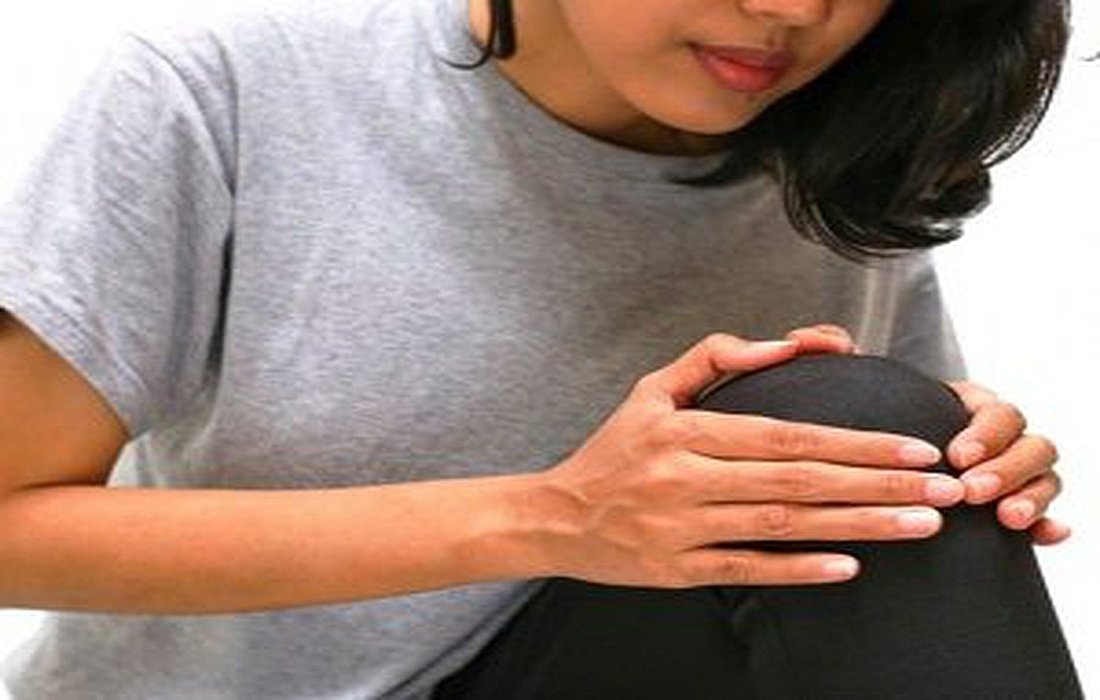Knee Pain inPregnancy
DuringPregnancyDuring pregnancy, physical changes occur in your body, making it natural to experience pain in your knees and other joints. This pain is often caused by the extra weight your body carries, putting additional pressure on your joints.
Knee Pain in Early Pregnancy:
Throughout the nine months of pregnancy, you will gain weight, which puts pressure on your uterus, joints, and ligaments, leading to the onset ofknee painin both the pregnancy period and the first trimester.Hormonal changeswill also play a key role in causing knee pain in early pregnancy.
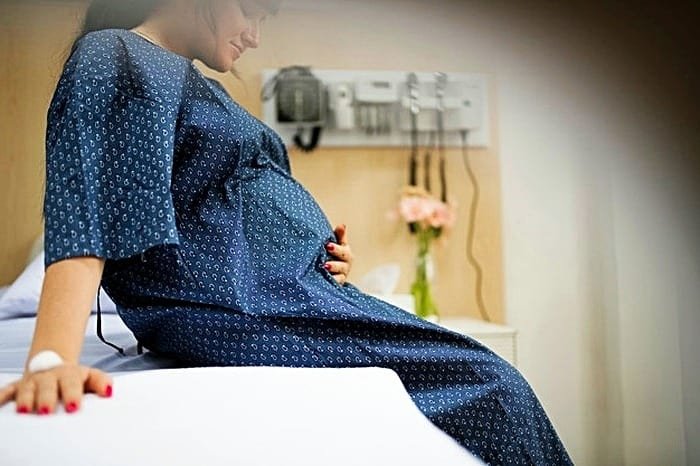
Types of Knee Pain During Pregnancy:
In this section of pregnancy and baby care onSelMagzvarious types of knee pain during pregnancy are discussed:
You may experience a persistent and annoying pain in your knees, which may be due to damage to your ligaments and soft tissues. If the knee is injured by a sharp object, the pain can be more intense. You might also feel pain in your knees after standing orwalkingfor long periods of time.
Causes of Knee Pain During Pregnancy:
Several factors can cause knee pain during pregnancy, some of which are listed below:
Hormonal changes
In the third trimester, hormones are released to prepare ligaments and tendons for childbirth, which not only loosens ligaments in the pelvic area but also affects ligaments and tendons in other areas, including around the knees. The kneecap may not be the main reason and can lead tomuscle crampsin the knees during pregnancy.
Pressure on Blood Vessels
Pregnancy can increase pressure on the blood vessels in your legs and knees, causing pain.
Weight Gain
The most common cause of knee pain during pregnancy is gradual weight gain. This weight creates pressure on your knees, especially if it’s your first baby, because your body cannot adequately support the extra weight.
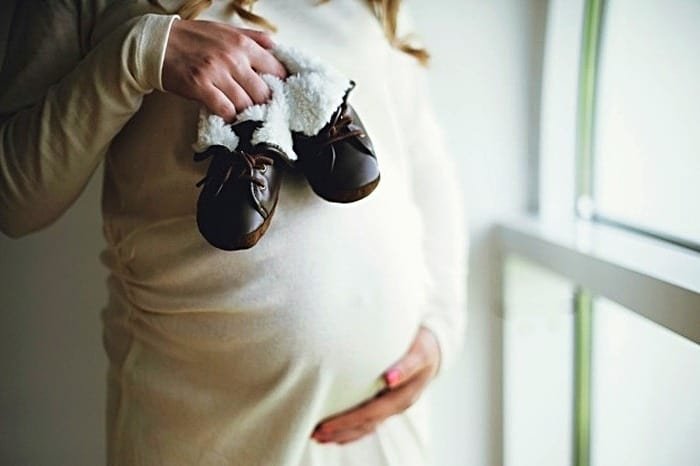
Excessive Exercise
If you exercise too much during pregnancy, you may experience knee pain. Exercises like weightlifting are beneficial during pregnancy but can weaken the knees, so make sure to perform knee strengthening exercises after doing squats.
In some cases, knee pain may actually arise from injuries, such as sprains or falls, rather than just bodily changes. If you experience severe knee pain, consult your doctor promptly, as it could indicate a serious injury.
Walking or Standing Too Much
Sometimes, knee pain can result from extended periods of walking or standing during the day, forcing your knees to carry weight for long stretches, leading to discomfort.
Calcium Deficiency
A calcium shortage in your bones can also cause knee pain during pregnancy.
Change in Center of Gravity
If you move or exercise excessively during pregnancy, your body shifts its center of gravity, putting uneven pressure on your knees, which will lead to pain.
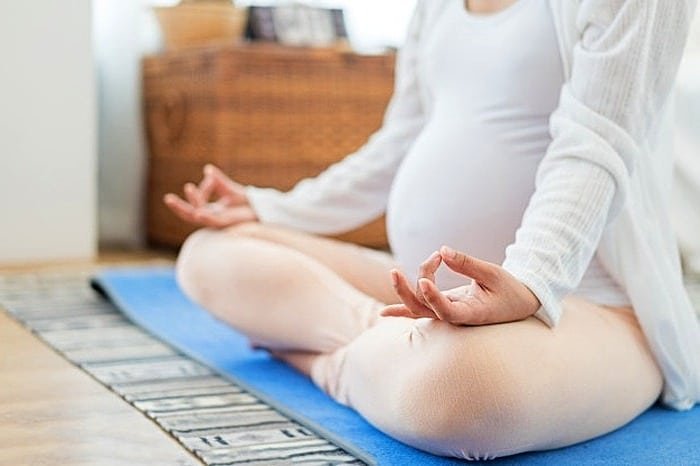
Issues Related to Knee Pain in Pregnancy:
If left untreated, knee pain during pregnancy can lead to future problems:
If you suffer from knee pain during pregnancy, you may be at risk ofarthritiswhich can occur later due to wear and tear of cartilage around the knee. This can result in joint stiffness, locking of the knee joints, and severe pain.
Excess weight puts pressure on the knees, leading to damage of the protective cartilage and ligaments surrounding the joints, and if not managed, can lead to long-term problems with walking, bending, andrunning.How is Knee Pain During Pregnancy Treated?
Knee pain usually arises from one of two causes: either from injury or due to the effects of pregnancy itself. The former requires medical intervention, while the latter can be treated with the following natural methods:
Knee strengthening exercises can help alleviate knee pain.
- Eat calcium-rich foods to maintain and balance your calcium levels.
- Be careful not to gain excessive weight.
- Try applying a hot pad or ice compress on your knees to relieve some pain.
- Keep your legs elevated as often as possible and make sure to rest.
- Consume omega-3 fatty acid-rich foods
- and supplements, but remember to consult your doctor first.Home Remedies for Knee Pain in Pregnant Women:The interesting and important point is that after giving birth, this pain will subside, but until then, here are some home remedies to help reduce your discomfort:
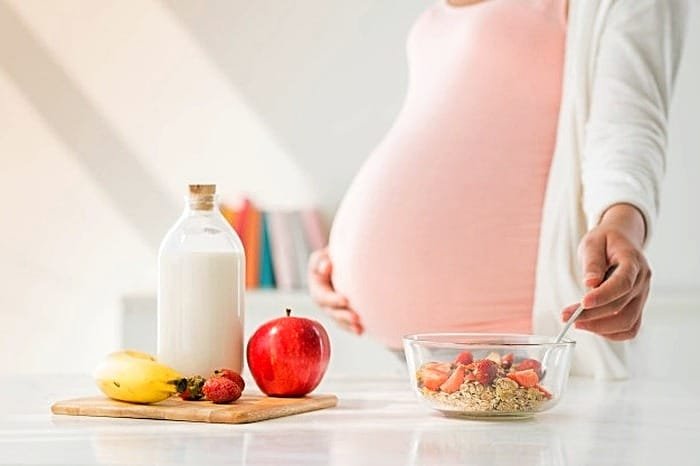
1. Try low-impact exercises to strengthen knee muscles.
2. Of course, you should consult your doctor before beginning any exercise during this time.
3. Wear comfortable shoes with good arch support.
Shock-absorbing cushioned shoes protect your knees.
4. Stand directly on your feet, as this offers immediate relief by taking weight off your legs.
5. Look for a knee brace.
This kind of device supports your ligaments and tendons, especially if your knees are swollen during pregnancy.
6. Avoid overeating and gaining unnecessary weight.
It is normal to gain about 15 kilograms during pregnancy.
7. Stick to a healthy diet and don’t overindulge.
Maintaining a healthy diet is the best way to control your weight and prevent knee pain during pregnancy.
8. Ask your doctor if you can take
acetaminophen
during pregnancy.9.Massage
therapy can help with pain and stiffness in the joints.10. Use splints, especially for your hands and feet, to relieve pain.How Can Knee Pain During Pregnancy Be Prevented?
In this section from SelMagz on pregnancy and babies, there are several steps you can take to prevent this issue:

You can try hot or cold compresses to relieve joint pain.
Consult your doctor before taking any medication. Doctors typically recommend acetaminophen for pain relief during pregnancy.
- Some supplements may help in preventing joint pain after consulting with your doctor.
- Include omega-3 rich foods in your diet to help prevent joint pain.
- Ensure you get enough rest to give your knees and joints a break.
- When Should You See a Doctor?
- Gaining weight during pregnancy often causes knee pain, which might also be due to other reasons, so it’s important to know when to consult a doctor:
– If knee pain is not due to an injury, the best option to discover its true cause is to seek your doctor’s opinion.
– If you’ve been around someone infected with the erythrovirus (also known as fifth disease), you should see a doctor immediately, as you may be at risk of
premature birth.
This is a rare occurrence, so there’s no need to panic.**Knee pain is one of the changes your body experiences during and after pregnancy, but with the simple methods listed above, you can minimize it significantly.**Knee Pain in Pregnancy
Causes of Knee Pain in Pregnancy



